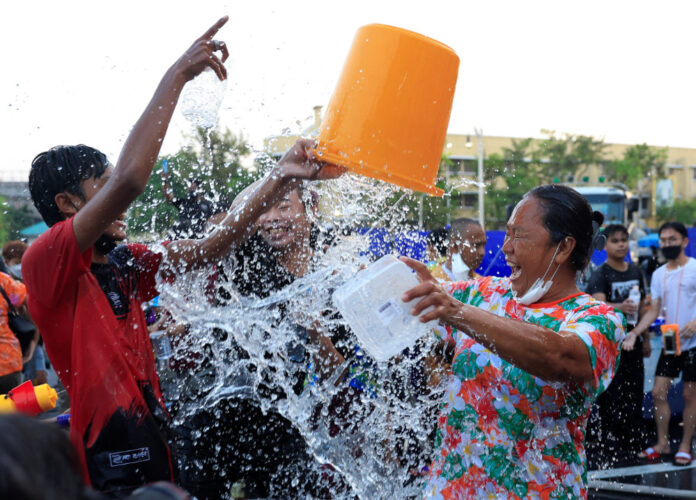BANGKOK: Thailand began celebrating the Songkran water-splashing festival in dry mode for the third year in a row on Wednesday, as the kingdom retained careful restrictions to control an expected surge of COVID-19 infections.
The traditional Thai New Year, also known as the world’s biggest water fight, takes place from April 13 to 15, when participants spend some of the hottest days of the year crowding the streets with water guns and spraying water from pickup trucks.
Songkran festivities this year remain largely water-free, with the government prohibiting water splashing and foam parties that made up the bulk of festivities before the pandemic. Traditional celebrations, including pouring water on Buddhist statues or over the hands of the elderly to show respect, have been permitted.
“I usually go out to join the water battles almost every year before COVID-19, like last time I went to Pattaya,” Pype, a 25-year-old employee of an automobile company, told Arab News.
“I miss those activities so hopefully all the activities will be back next year.”
Though some coronavirus restrictions remain in place, officials are encouraging people to visit temples and have organized various cultural shows that usually attract crowds of tourists.
Prattana Samransuk, who traveled from Bangkok to her family in the country’s east to celebrate Songkran, said there was much enthusiasm in her hometown.
“I can see many people coming out on the street and many cars in Chonburi today. People seem to be excited as there are some activities, even though the government does not allow water splashing,” Samransuk told Arab News.
Because many people return to their hometowns to celebrate Songkran with relatives during the long holiday, the Ministry of Public Health has urged the public to follow disease control measures, as officials expect a surge in COVID-19 cases. The kingdom reported over 23,000 new cases and 106 deaths on Wednesday morning.
“We need to keep some social and economic activities going as well as balancing the disease control measures,” Suwanchai Wattayingcharoenchai, director general of the ministry’s health services department, said.
“It is expected that after Songkran we might find the number of infections increase dramatically … around 50,000 to 100,000 per day,” he added. “So, we need cooperation from everyone.”

